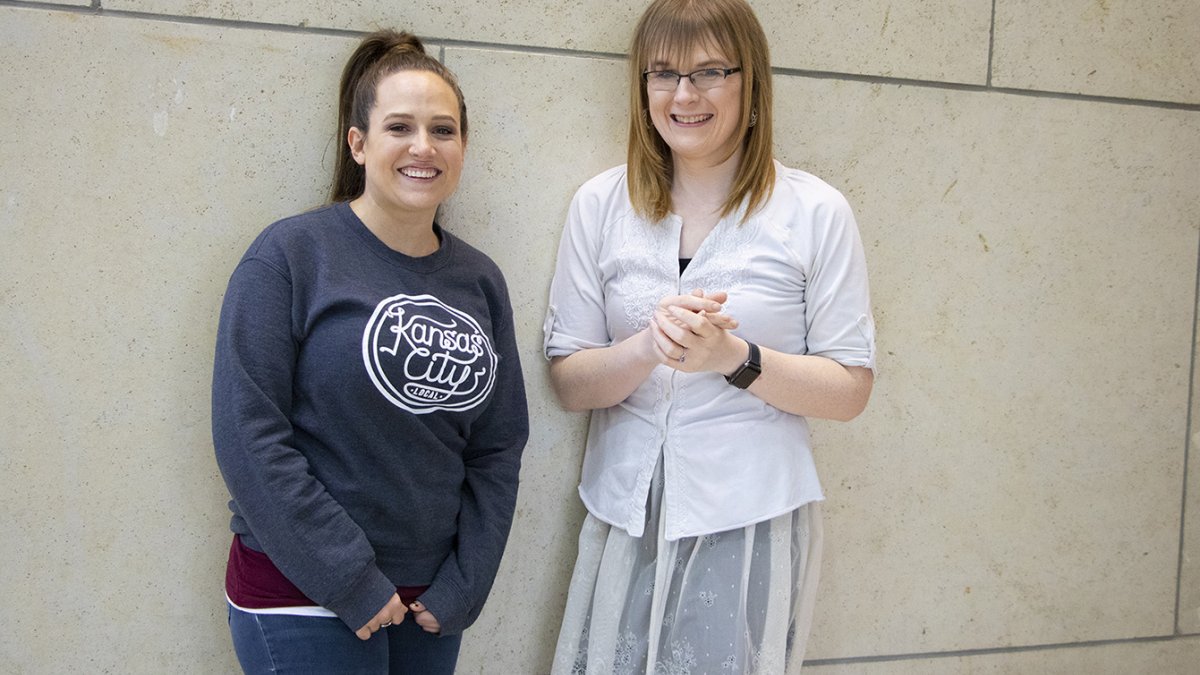Psychology Faculty Member, Undergraduate Student Research Gender Similarities and Hiring Practices

OVERLAND PARK (February 26, 2019) – From a young age, we’re taught men and women are different, a lesson impacting life roles, expectations and even hiring decisions. But what happens when we learn those differences aren’t so significant?
That’s what Anna Pope, Long-term Lecturer in KU’s psychology department, and psychology undergraduate student Carrie Sutherland propose to learn in an ongoing research study. Pope and Sutherland’s project, which looks at the impact of gender similarities on hiring practices in upper-level management, recently received $3,000 in grant funding from Psi Chi, the international honor society in psychology.
“What we want to do is look at what happens when we educate employers on the concept of gender similarities, Pope said. “If we tell an employer working in management there’s no appreciable differences between men and women, does it make them more likely to hire a woman, or just go with their default, which might be to hire a man for a male-biased position?”
Pope says society has taught us the prevailing attitude that men and women have psychological and physical differences impacting their life roles; however, studies show many of those differences aren’t so significant.
“When students are going into research, the first thing they want to do is gender-difference work. As a social psychologist, the first thing I have to tell them is actually, the work all through our field has shown gender differences are often very small or nonexistent,” Pope said. “There’s been this school of thought around for a while now that we should think about gender similarities instead of differences. We should only focus on the few gender differences supported by research, which truth be told, are often really sex differences, not gender differences.”
Sutherland, who is in her final year of psychology undergraduate study at the KU Edwards Campus, proposed the research project to Pope during the fall 2018 semester and submitted the proposal for funding.
“The idea of women ‘shattering the glass ceiling’ particularly interests me because this term originated in the '70s and is still incredibly relevant today,” Sutherland said. “My biggest hope is that this project will help shed some light on how to overcome the unseen barriers and obstacles women face when trying to advance to higher level positions.”
Sutherland says the research project, which will be piloted with undergraduate students, will be carried out via an online survey. Pope and Sutherland plan to recruit study subjects with experience making hiring decisions.
“The survey has three different conditions, which are implemented through articles,” Sutherland said. “One article is a control, one is an article about gender similarities and the last is about gender differences. After participants have read the articles, they will be asked to review mock applicants for a described position by rating them and picking the top applicants.”
Pope says the grant award will allow her and Sutherland to compensate their subjects and recruit participants who work at the professional level they’re hoping to study.
“We want people who have been on a hiring committee or two in the last five years,” Pope said. So we’re going to be recruiting from businesses and organizations, anyone who has been involved in hiring for upper management positions. The money is actually going to allow us to pay them to do this, because we need some sort of incentive in order to recruit research subjects.”
Pope says this is the first year she’s encouraged her students to apply for grant funding for their projects, and that Sutherland’s is one among several promising research projects from her students with potential for future funding.
“We have multiple projects that could use funding, it’s really just a matter of communicating the need for that funding,” Pope said. “But we have so many good, quality projects coming out of the research group right now that pretty much any time there’s a student grant opportunity coming up, I encourage my students to apply for it.”
About The University of Kansas Edwards Campus
The KU Edwards Campus at 127th Street and Quivira Road in Overland Park delivers high-quality academic, professional and continuing education programs as well as research and public-service benefits of KU to the Greater Kansas City community in order to serve the workforce, economic and community development needs of the region. More than 3,000 individuals pursue degrees and certificates through the Edwards Campus, and its Professional & Continue Education units receive more than 40,000 class registrations each year.





